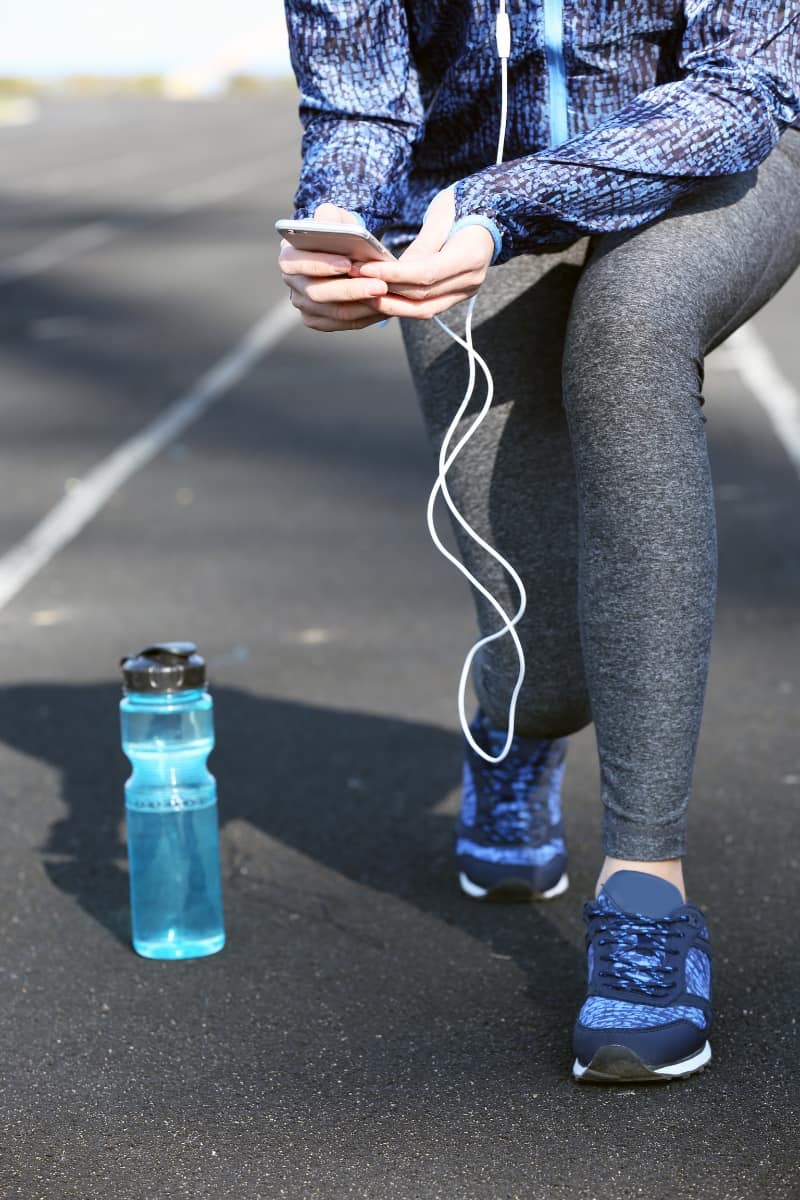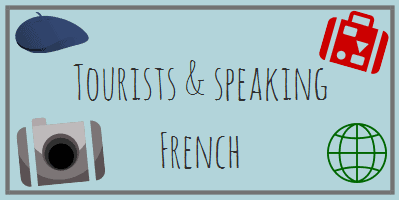Bonjour, mes amis! Are you planning a trip to France soon? While you may be excited to immerse yourself in French culture, keep in mind that there are certain tourist behaviors that might raise eyebrows among the locals. Cultural differences are real! From being too loud to wearing the wrong thing in public, there is some tourist behavior that’ll get you the side eye from the French.
Let’s explore 13 such things that you might want to avoid doing if you want to blend in seamlessly with the French crowd, or at the very least, not attract negative attention and make a bad first impression. So grab a croissant, and let’s dive in!
First, there is something important I’d like to mention before we get into my list of tourist behavior in France that’ll get you strange looks from the French.
As a visitor in France, you aren’t expected to know French and everything about the country. It’s normal and totally alright if you don’t do everything like the French do. You’re not French and it’s impossible to know every social norm.
But knowledge is power and it comes down to it being a matter of respect. If we can educate ourselves a little bit about a country and its culture before going, I personally feel that is a step in the right direction and might even lead to you having a better trip.
All that said, the bottom line is that you can do whatever you want. None of these things are super serious matters of life and death. You’re not breaking the law if you don’t respect French norms as a tourist. The culture police aren’t going to jump out from behind a bush and publicly shame you for bad tourist behavior. Some of you reading might not care what the French think, so in that case, you do you.
But if you want to understand French culture and fit in a little better, keep reading. The things I mention below aren’t generally done in France (or not on the same scale as in the U.S.). That’s not to say that you will never find any French person ever doing them, let me be clear about that. But they’re done much less often in France than the U.S.
My point with this post is to provide a bit of cultural education on what the norms are in France and explain what types of things would be socially acceptable and what would stand out or be perceived as a bit unusual or even rude, in some cases. It’s all about better preparing yourself and being a respectful tourist!
P.S. On the flip side, when I’ve explained to French people headed to the U.S. that tipping 20% at a restaurant is standard practice, they’ve been surprised and grateful for the heads up. Stiffing the waiter would definitely be seen as rude in the U.S., so that was just an example of a cultural norm in the other direction, so yes, this stuff is important!
Here are 13 things tourists in France do that’ll get them strange looks from the French:
1. Eating on the go. The French take mealtime seriously (it’s one of the things I love about food culture here) and it’s not super common for French people to eat while on the go. Eating a sandwich while walking down the street, on the metro, or at your desk while multitasking is done but isn’t most people’s everyday norm. Whenever possible, French folks put an emphasis on mealtime as the main event and not something you do while also doing something else.
People make time to eat and enjoy their food whenever possible — often with company. It’s not that you’ll never see it, as I said, but try to take time with your meals if you can. If you do eat while on the move, strangers on the street might even extend a bon appétit your way as they pass.
There is one habit you’ll see quite frequently, though. It’s totally okay to nibble on the end — called un croûton or quignon depending on where you live — of your fresh baguette on your way home. More baguette etiquette here.
2. Asking for lots of ice in your drink. You’ll notice that in France, drinks aren’t served with much ice, if at all. If you ask for une carafe d’eau, it’ll often be served at room temperature or chilled along with some empty glasses, no ice. If you’d like a full glass of ice with your drink, definitely be sure to ask because it’s not the norm.
3. Not saying bonjour. This one is so major that I wrote an entire blog post on the importance of saying bonjour in France. Before starting any interaction with any French person (and when entering a space such as a doctor’s waiting room), it’s expected that you’ll greet the person with a bonjour before asking for directions, ordering your food, etc.
It’s a necessary and polite greeting that says, “Hello, I see you, fellow human being, and I’m acknowledging your presence first and foremost.”
It goes without saying that of course not everyone in the USA is rude, short, or forgets polite greetings — I’m not saying that at all. Many Americans were raised to be super polite and do always address others politely. But the difference is that in the USA, it’s not a social norm across the board to say hello, thank you, and goodbye. Every time. You can get away with less.
While it’s not the most polite thing, in the USA it’s more accepted to be less polite in social interactions and just say to a waiter, “I’ll have the steak.” Or “I’ll have the steak. Thanks” instead of “Hello, I’ll have the steak please. Thank you,” like you’d hear in France.”
That’s the major difference between the bonjour usage in French versus how we use hello in English. In France, saying bonjour in French is a sign of respect and a cultural norm. It’s not optional to forgo the greeting if you want people to know that you understand French manners.
4. Speaking loudly in public, especially at restaurants. Americans are far from the only nationality that tends to speak more loudly than the French in public, but we seem to have a knack for making ourselves known. That’s not to say all Americans are loud in public, but I think it’s fair to say that our level of “normal” public conversation skews a bit louder than the French overall.
If you’re speaking at a volume that allows a table across the room to hear you word for word, you might want to lower your voice a bit. The French are a bit more discreet and generally keep their voices down a bit more than we might be used to stateside.
5. Chatting up a stranger in line and or asking personal questions as part of small talk. Small talk with strangers is a bit less common in France and definitely doesn’t get as personal as it does in the U.S. It’s important to recognize the difference between the public and private sphere.
It’s not that the French don’t care or aren’t friendly and curious. It’s that they’re being respectful of your personal life and context is everything. This one is nuanced and something that took me years to fully understand. I talk about small talk in France in more depth here.
6. Approaching someone in English. Absolutely no one expects tourists to speak perfect French, but learning a handful of words and/or basic phrases will go a long way toward how you’re perceived.
I’ve seen tourists approach a bakery employee and say “Hello” in English and proceed to order in English without any acknowledgement of the fact that we’re in France and that starting with a “bonjour” is the least we could do. It’s a bit presumptuous to assume the person even speaks English. And then tourists wonder why they didn’t get treated all that well!
Yes, many French people speak enough English in touristy areas to do their job, but it shouldn’t be taken for granted. Always start with that bonjour (as I mentioned in #3) and maybe a “parlez-vous anglais ?”
I share all kinds of French travel phrases with audio in this post and even more polite French words in this one so you can practice. 😉
7. Wearing sweatpants or workout attire out and about (when not working out). There’s a difference between ratty old sweatpants and sneakers and chic, put-together athleisure — let me say that off the bat. You’ll definitely see French women wearing cute joggers and trendy sneakers. But you won’t see too many people in actual athletic wear going out for lunch after their gym session, still donning their sweaty gym clothes.
A quick errand on the way home, sure, but wearing gym clothes the whole day is a bit of a rarer sight. Gym clothes are generally reserved for the actual gym or workout session.
P.S. There are lots of differences between gym culture in France and the U.S., in case that might be of interest. One thing I noticed was that in the U.S., many women would simply grab their bag from the locker room after their workout and head out the door in their gym clothes.
In France, it was a little different. Most of my fellow gym-goers would actually shower and get dressed in street clothes before leaving the gym, even if they were going straight home after.
P.P.S. I wrote a no-BS guide on what to wear in France you might like too.
8. Wearing overly flashy clothes. French style tends to be understated, so if you want to fit in, leave your overly flashy and revealing clothes at home. As a tourist, you probably want to be comfortable, so think walkable shoes and not sky-high heels, a miniskirt, and all your jewelry. This makes sense from both a practicality and safety standpoint. Here’s how to dress in France.
9. Leaving a large tip at a restaurant. In France, tipping is done a bit differently and it would be seen as very unusual to tip 20% or more at a restaurant. I wrote all about tipping in France here.
Tips are certainly appreciated but aren’t compulsory at all. Many French people don’t tip at all and that’s not considered rude. I usually recommend that you round your bill up at a café if you’re getting a coffee or something small. If your bill is 4.30€, leaving a 5€ bank note is more than fine.
For a casual meal, leaving a few extra euros would be seen as normal (not expected though). But a 20% tip would be above and beyond and the vast majority of French people do not leave that sort of tip.
Being a waiter in France is considered a profession and not something you do for six months as a student for extra pocket money. That’s not to say they won’t provide good service. It’s just that waiters in France are not trying to serve you in a certain way in the hopes of earning a big tip.
Generally, French waiters aren’t going to tell you their name and check on you multiple times throughout the meal and keep refilling your water. They do their job appropriately — what’s normal for French culture — and get paid a salary for it.
It’s not a well-paid job or one that will make someone rich, but it’s a job and waiters have a work contract and are compensated for their work.
For excellent service, feel free to do what you feel is appropriate for the situation.
10. Gun talk. Outside of a hunting context, conversations about guns might be met with blank stares. If you own a gun in France, it’s for the shooting range, and there’s a lengthy process to obtain one. The vast majority of French people do not own a personal firearm.
11. Not knowing how to drive stick. Most vehicles in France have a manual transmission and when people learn how to drive, it’s on a stick shift. You will find automatic cars, but they’re way less common than they are in the U.S.
12. Hugging someone to say hello. Learn from my mistakes, and make sure you do a cheek kiss (une bise) and don’t go in for a big American hug when greeting people in France. The French greet friends and family with cheek kisses and don’t wrap their arms around each other to say hello.
13. Eating outside of mealtimes (or dinner before 7 p.m.). The French are a bit more strict with mealtimes than we are in the U.S. Outside of big cities and touristy areas, it may be more difficult to find restaurants open all day long with a full menu where you can stop in for a quick bite at off hours (a late lunch at 3 p.m., for example).
Aside from fast food, service continu is not the norm in smaller towns and restaurants have meal service hours, which generally run from 12-2:30 for lunch and 7-10 p.m. for dinner. Being seated outside those times is less common. If you invite people over for a dinner party, 7:30 or 8 p.m. would be the norm and anything earlier would be a bit unusual.
***
What tourist behavior in France would you add to my list?
Thanks for reading and if you liked this post, you might like 10 France tips first-time travelers need to know as well! I also have an eGuide that’ll help better prepare you for your France trip!
PIN IT:











I love your explanation of #3! Understanding that it’s not a question of right/wrong or more polite/less polite, but just social & cultural norms for each country, is so important. (It also reminds me of discussions I’ve had with Europeans about Americans’ public friendliness that foreigners often see as superficial — it’s the same kind of idea.)
LOL I don’t drive at all so there’s that but I also don’t do any of the others, so I imagine I will fit in marginally well.
14. Cellphones out during a meal. In several European countries (not just France), I politely pointed out to my kids that not a single person was on their cellphone. It’s respect for the food and the conversation with your fellow diners.
Bonjour Diane,
I’ve heard the culture around tipping is becoming more aligned to U.S. practices. We were in Paris, mon couer, last year and our experience was as you stated. Have you heard or noticed a recent change?
You definitely see more tip jars and people leaving a small amount than you did a decade ago but definitely nowhere near 20%!